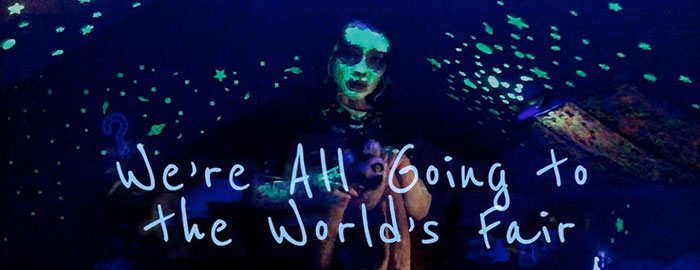
Color, 2021, 85 mins 52 secs.
Directed by Jane Schoenbrun
Starring Anna Cobb, Michael J. Rogers
Utopia (Blu-ray) (US RA HD), Lightbulb (Blu-ray) (UK RB HD) / WS (1.78:1) (16:9)

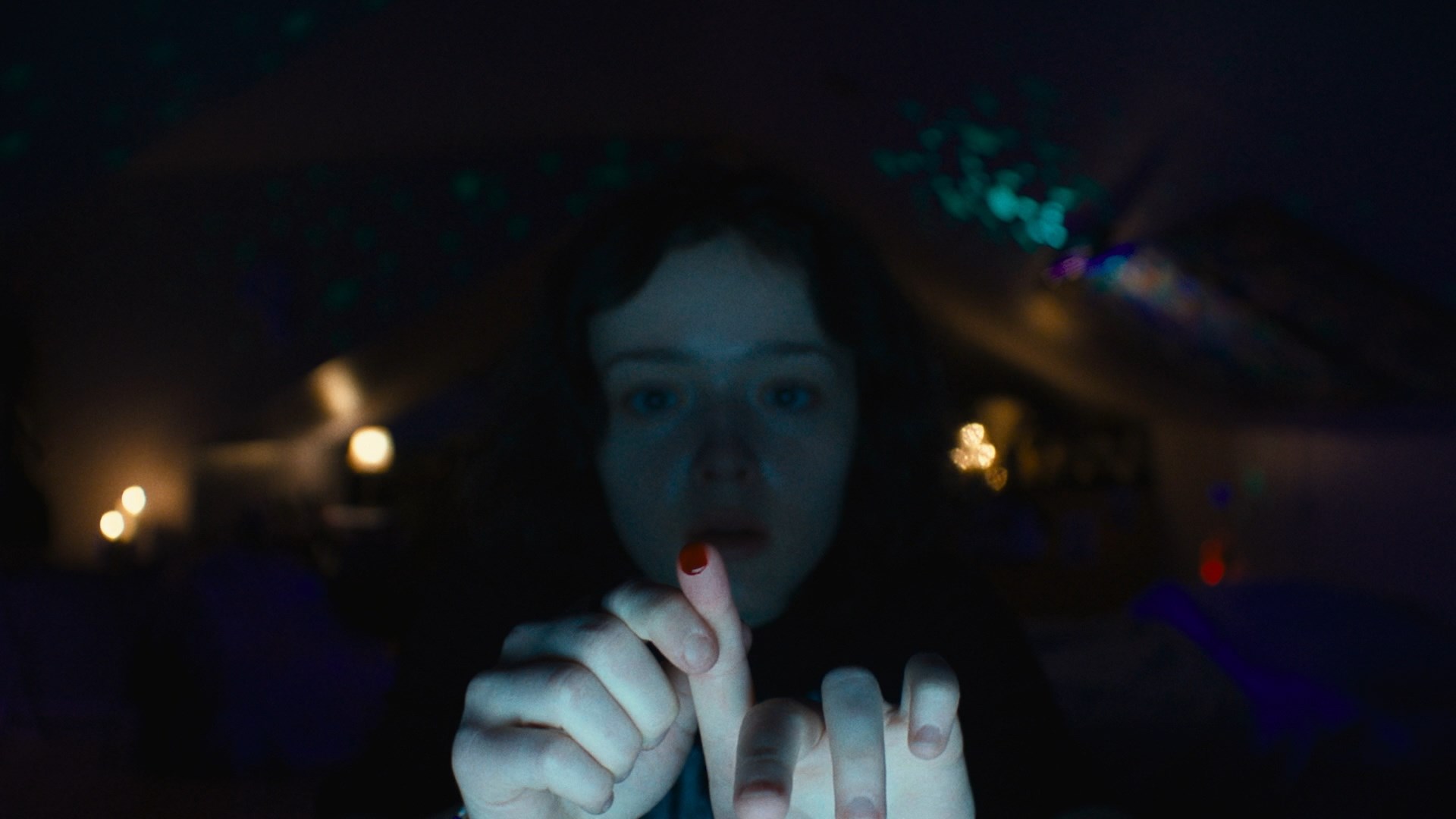 it's controlled human interaction and
it's controlled human interaction and 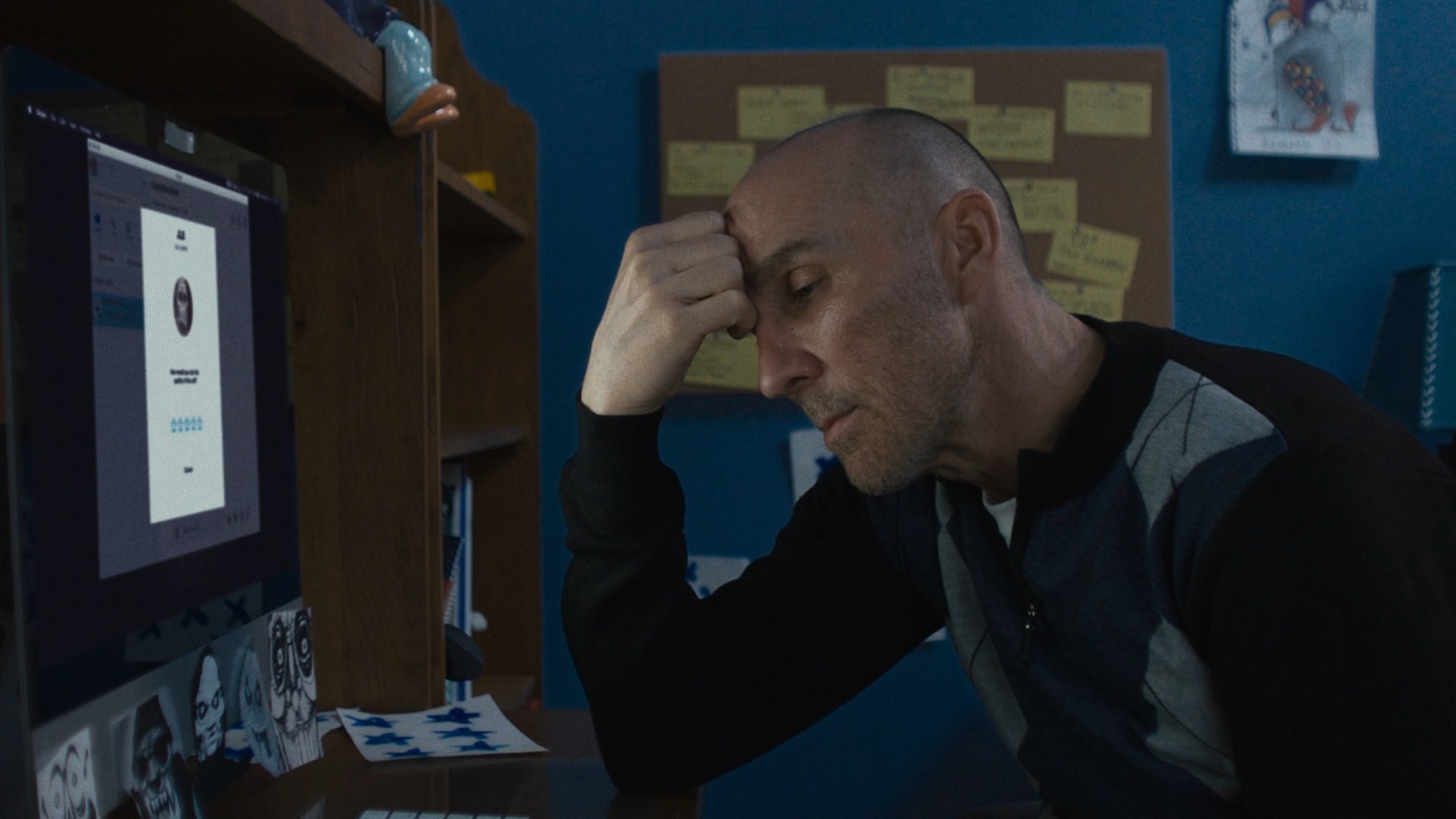 major current events for well over two decades, filmmakers have been surprisingly reluctant for the most part to really grapple with what the online world really is and how it impacts younger users. Normally we get either an alarmist tract (like the dire Men, Women & Children) or any number of escapist fantasies. Attempting to take a more complex and ambivalent look at that environment is We're All Going to the World's Fair, which has been categorized more or less as a horror film thanks to its occasional unsettling elements and a couple of tangents involving Cronenbergian body modification. How you choose to process it will vary greatly on the viewer, and though it has its flaws, there's plenty of discussion to be had in non-binary filmmaker Jane Schoenbrun's first narrative feature.
major current events for well over two decades, filmmakers have been surprisingly reluctant for the most part to really grapple with what the online world really is and how it impacts younger users. Normally we get either an alarmist tract (like the dire Men, Women & Children) or any number of escapist fantasies. Attempting to take a more complex and ambivalent look at that environment is We're All Going to the World's Fair, which has been categorized more or less as a horror film thanks to its occasional unsettling elements and a couple of tangents involving Cronenbergian body modification. How you choose to process it will vary greatly on the viewer, and though it has its flaws, there's plenty of discussion to be had in non-binary filmmaker Jane Schoenbrun's first narrative feature.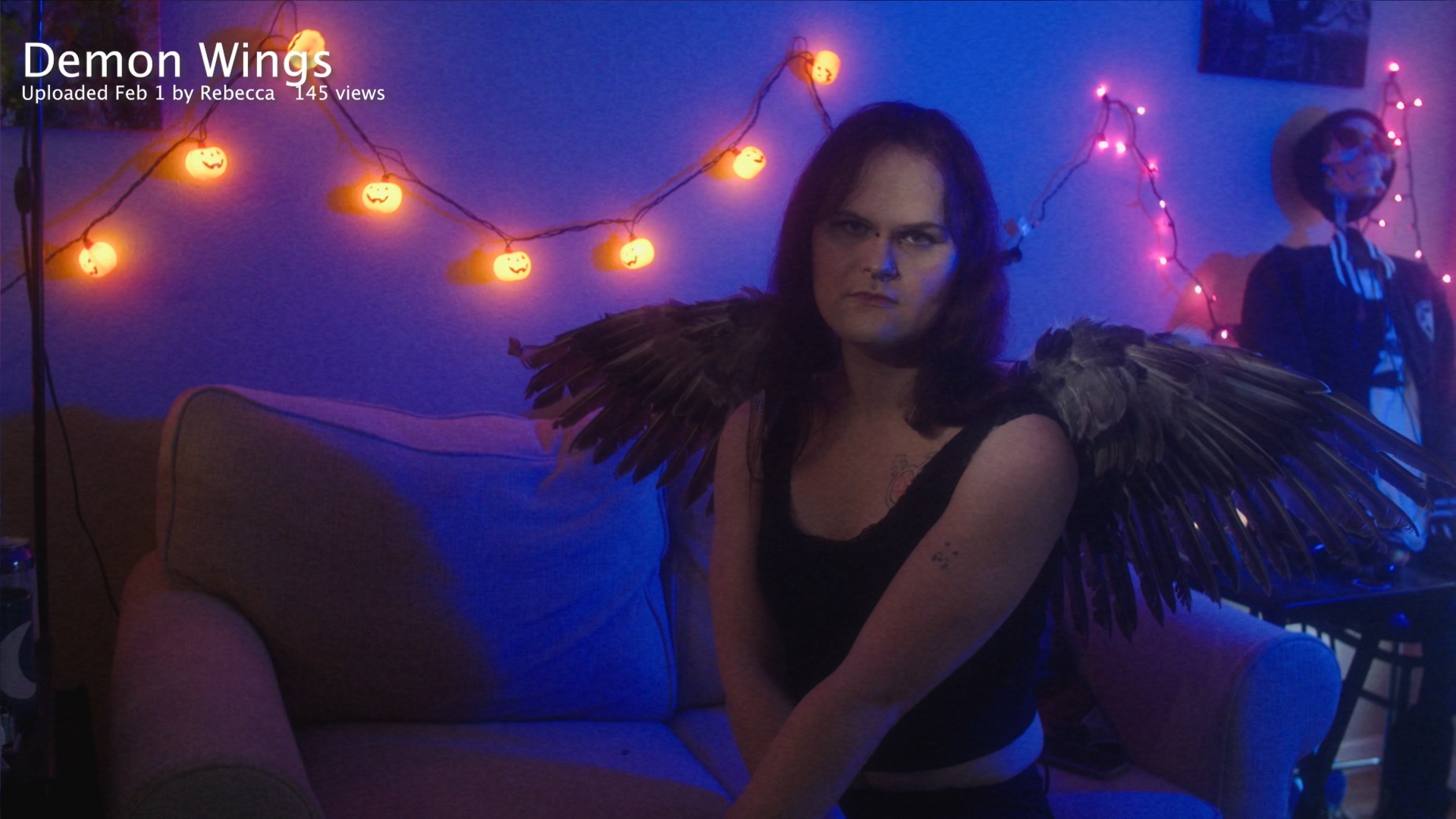 multi-colored crust on his skin. With the line between performance and reality becoming increasingly blurred, Casey displays irrational and disturbing
multi-colored crust on his skin. With the line between performance and reality becoming increasingly blurred, Casey displays irrational and disturbing 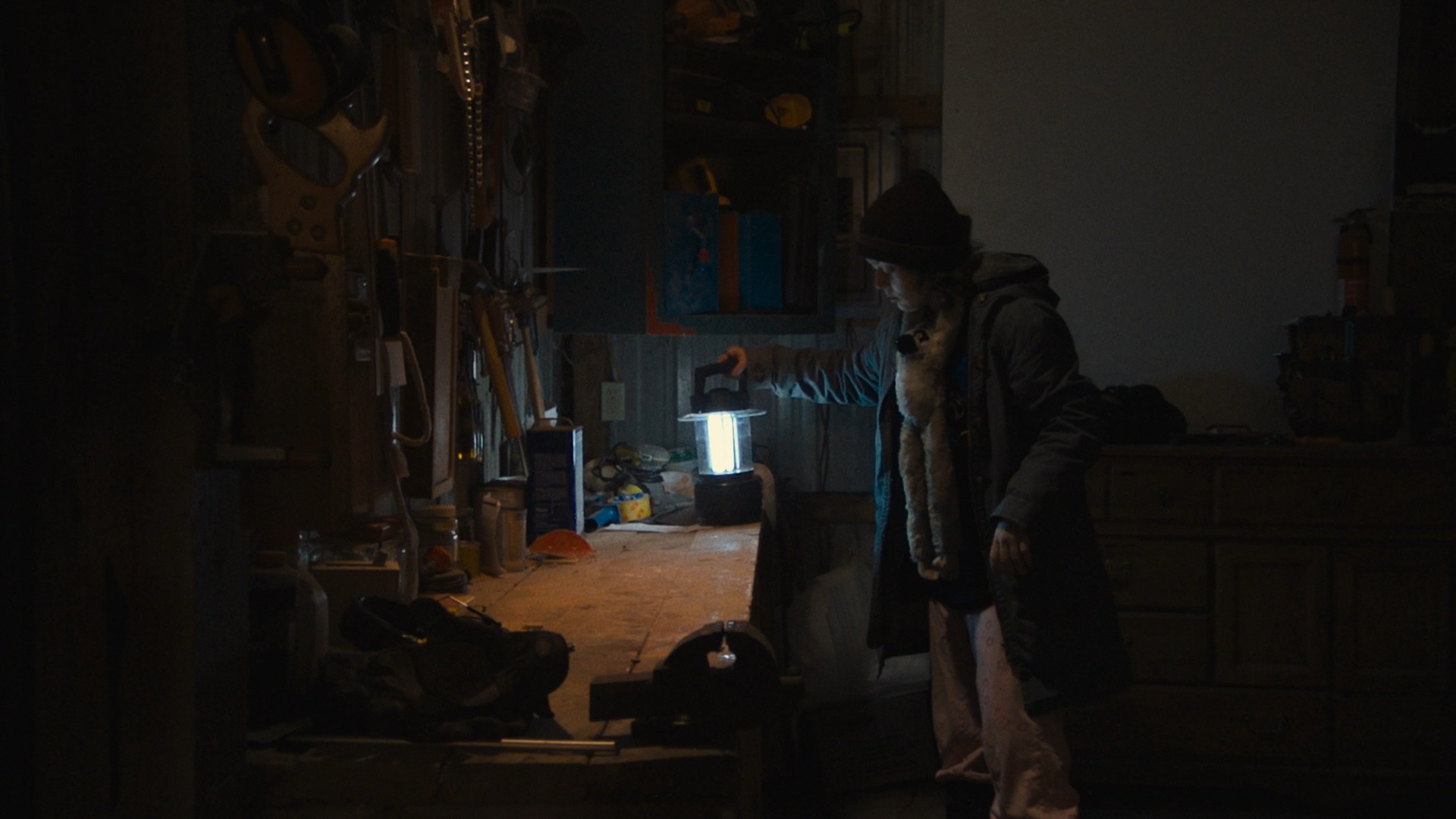 behavioral patterns in front of the camera and receives a concerned warning video from an older viewer, JLB (Rogers), whose own motivations are less than clear.
behavioral patterns in front of the camera and receives a concerned warning video from an older viewer, JLB (Rogers), whose own motivations are less than clear.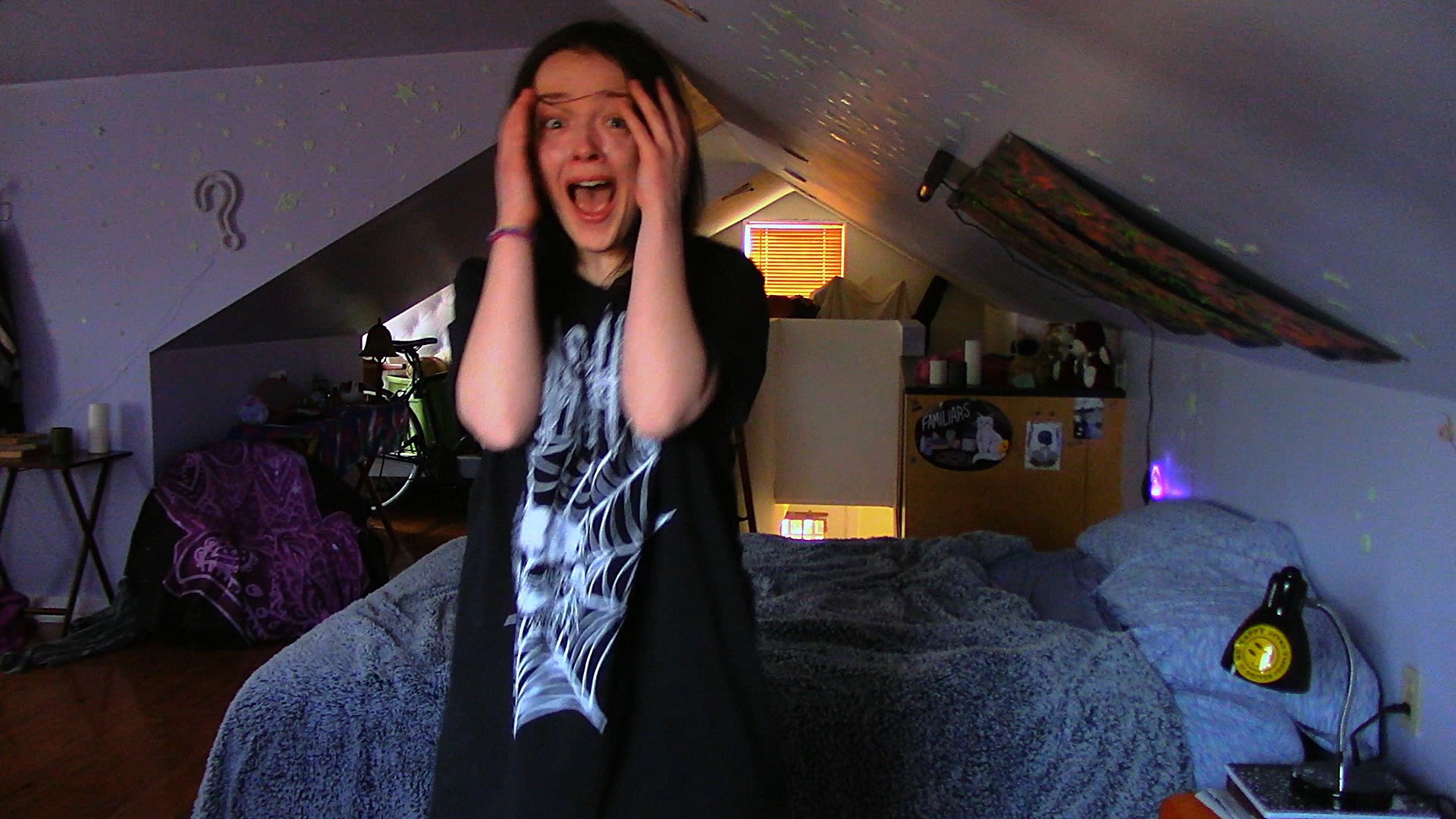 immaculate as you'd expect for a recent digital production. The DTS-HD MA English 5.1 track sounds great with only occasional multichannel activity, given that
immaculate as you'd expect for a recent digital production. The DTS-HD MA English 5.1 track sounds great with only occasional multichannel activity, given that 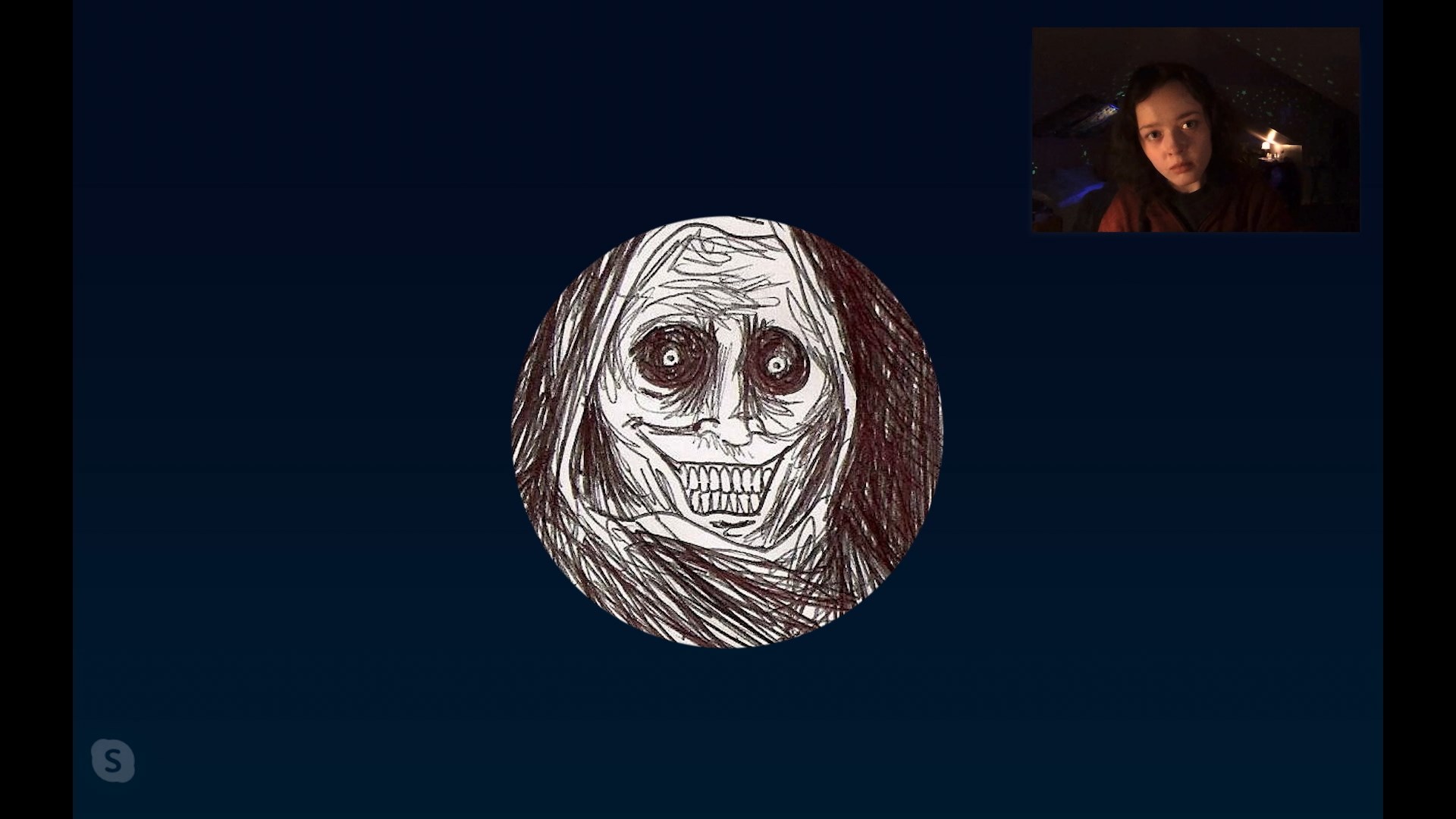 most of the film involves people speaking to screens or watching videos; optional English subtitles are provided (and come in handy with a few muttered lines). Schoenbrun is all over this release including an audio commentary with a very game Cobb, an 89m1s Zoom conversation with Dr. Eliza Steinbock moderated by Chloé Galibert-Laîné, a 2021 virtual Q&A from the Chattanooga Film Festival (33m17s), and a 2021 Q&A from the Fantasia Film Festival moderated by Ariel Esteben Cayer (41m1s). There's a lot to chew on here with discussion about coming of age online, transitioning and queer perspectives, the nature of participating in a game and what happens when you're involuntarily torn out of it (which would make this an interesting companion film to Bitter Moon), the approach to the ending, real-life experiences online from the positive to the very sinister, and tons more. Also included are the original trailer and three deleted scenes: "Casey's Coming Home" (1m47s), "Casey's Walking Tour" (8m21s), and an extended ending (10m49s). An insert booklet features another Q&A with Schoenbrun (here conducted by Juan Barquin) with further discussion of the discarded extra ending bit (a wise move) and a further exploration of coping with being out of place in one's body while coming to terms with yourself online.
most of the film involves people speaking to screens or watching videos; optional English subtitles are provided (and come in handy with a few muttered lines). Schoenbrun is all over this release including an audio commentary with a very game Cobb, an 89m1s Zoom conversation with Dr. Eliza Steinbock moderated by Chloé Galibert-Laîné, a 2021 virtual Q&A from the Chattanooga Film Festival (33m17s), and a 2021 Q&A from the Fantasia Film Festival moderated by Ariel Esteben Cayer (41m1s). There's a lot to chew on here with discussion about coming of age online, transitioning and queer perspectives, the nature of participating in a game and what happens when you're involuntarily torn out of it (which would make this an interesting companion film to Bitter Moon), the approach to the ending, real-life experiences online from the positive to the very sinister, and tons more. Also included are the original trailer and three deleted scenes: "Casey's Coming Home" (1m47s), "Casey's Walking Tour" (8m21s), and an extended ending (10m49s). An insert booklet features another Q&A with Schoenbrun (here conducted by Juan Barquin) with further discussion of the discarded extra ending bit (a wise move) and a further exploration of coping with being out of place in one's body while coming to terms with yourself online.![]()